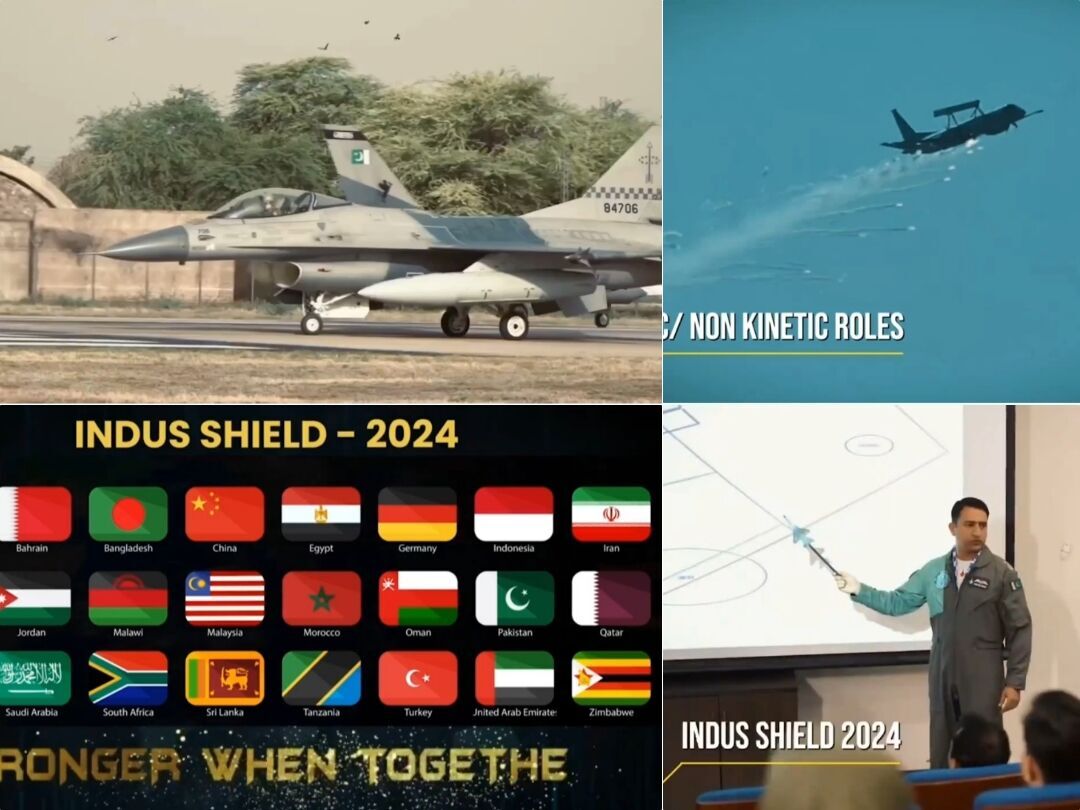
In a rare diplomatic and military step, Pakistan’s Indus Shield 2024 has drawn global attention. The event united Turkey, Iran, and Saudi Arabia—three major Middle Eastern powers with strained histories. Pakistan’s success in bringing them together reflects its growing influence as a regional stabiliser.

Background: The Regional Divide
Turkey, Iran, and Saudi Arabia have long been at odds, divided by conflicting ideologies and interests. Turkey has aligned itself with Qatar and supported movements like the Muslim Brotherhood, which Saudi Arabia opposes. Iran’s support for various proxy groups in the region has also sparked tensions, especially with Saudi Arabia. These differences made it seem unlikely that these nations would ever collaborate in any significant way.
Enter Pakistan: The Bridge Builder
Pakistan, with its neutral stance and positive relations with all three nations, emerged as a key mediator. Its strong ties with Saudi Arabia (due to historical military cooperation and economic links), Turkey (through shared defence projects and close diplomatic ties), and Iran (due to geographic proximity and shared economic interests) ideally position it to engage with these key players.
Pakistan leveraged its strategic geographical position and military diplomacy, offering Indus Shield 2024 as a neutral ground for cooperation. The military exercise aimed at counterterrorism, regional security, and intelligence-sharing provided a unique opportunity for these nations to collaborate without the political baggage of past conflicts.
Indus Shield 2024: A Turning Point
Indus Shield 2024 is a multilateral military exercise held in Pakistan, focusing on joint counterterrorism strategies, maritime security, and regional stability. By inviting Turkey, Iran, and Saudi Arabia to participate, Pakistan positioned itself as a leader in fostering cooperation in a highly volatile region.
The exercise allowed the nations to set aside their political differences and focus on shared security concerns, such as terrorism, border security, and regional stability. Moreover, it created a platform for dialogue and confidence-building, which could lay the foundation for future diplomatic breakthroughs.
Why These Nations Joined Forces
- Shared Security Concerns: Despite their political differences, all three nations face common threats like terrorism and the need for secure trade routes. Pakistan’s invitation to collaborate on these matters was compelling.
- Economic Interests: The nations recognise the potential economic benefits of working together. Stability in the region would boost trade and investment, making cooperation more attractive.
- Pakistan’s Neutrality: Pakistan’s ability to maintain positive relations with all three nations played a crucial role. None of the parties saw Pakistan as favouring one side over another, which made cooperation less politically risky.
Long-Term Implications for Regional Stability
The successful cooperation under Indus Shield 2024 could have broader geopolitical implications. The Middle East could see a shift toward greater regional stability if Turkey, Iran, and Saudi Arabia continue collaborating on security and economic initiatives. This partnership could also counterbalance external influences in the region, reducing the dominance of global powers.

Pakistan’s role in making this cooperation possible solidifies its growing influence as a key mediator in Middle Eastern affairs, advancing its strategic interests in regional stability.
Conclusion
Indus Shield 2024 commemorates an important event in Middle Eastern diplomacy. By facilitating cooperation between Turkey, Iran, and Saudi Arabia, Pakistan has proven itself to be a diplomatic force capable of fostering unity in one of the world’s most divided regions. The success of this initiative could be the beginning of a new era of cooperation in the Middle East, with Pakistan at the forefront as a bridge-builder.







